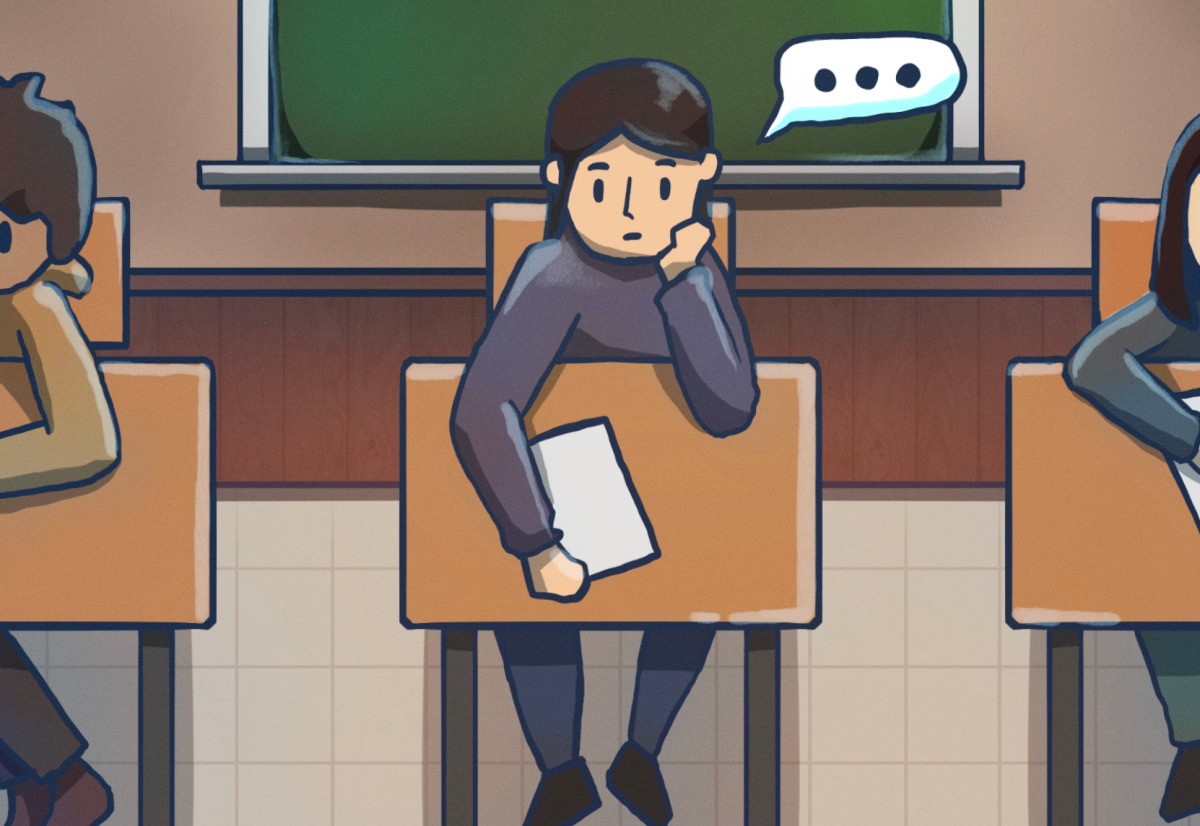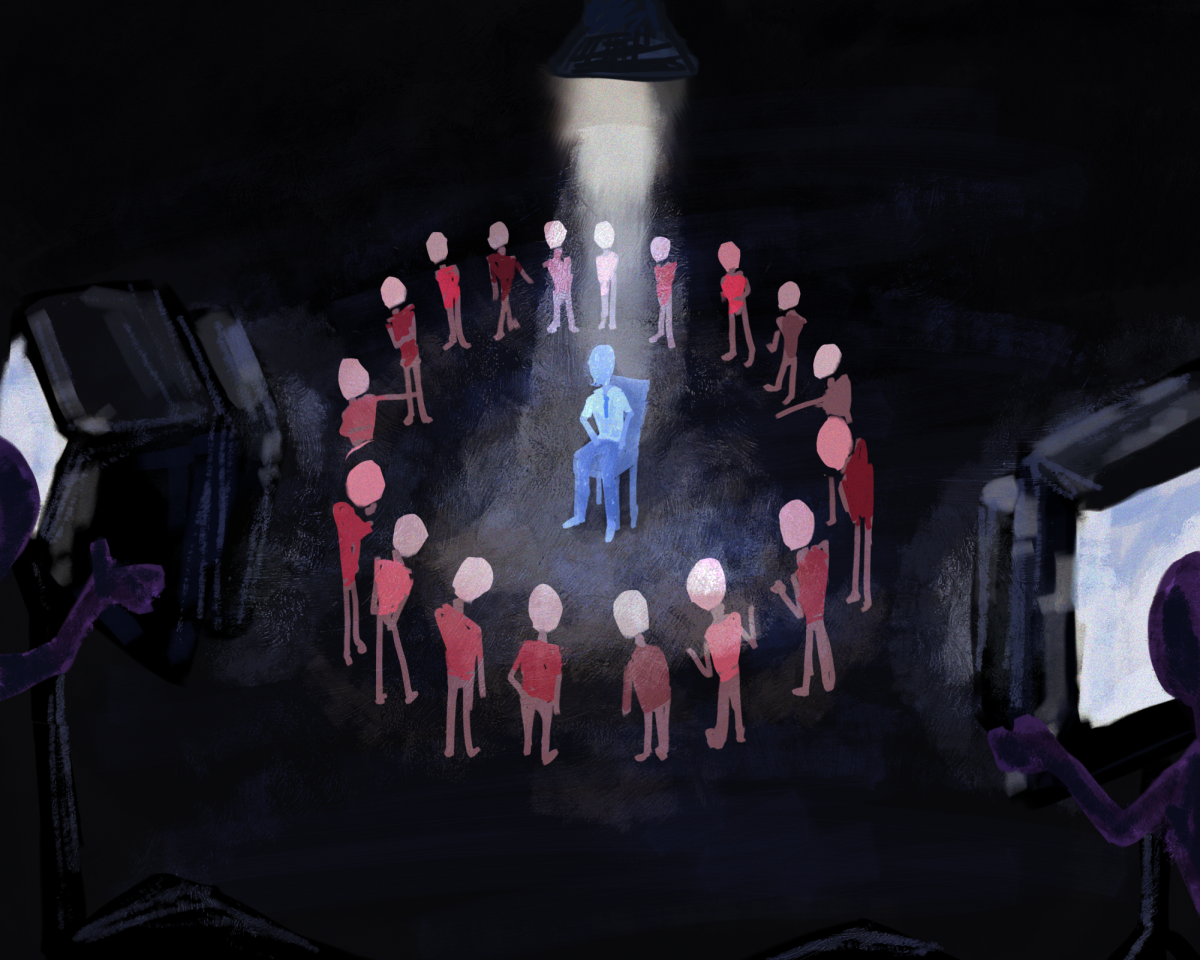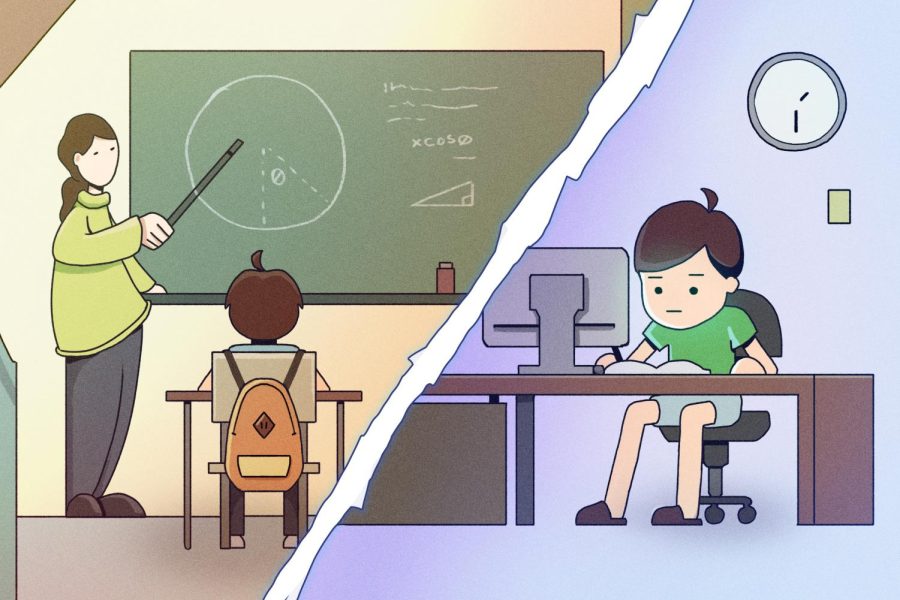Some names have been changed to protect student’s privacy
Whitman is one of the highest-rated public schools in Maryland. Being one of the top-rated schools, it offers 34 Advanced Placement (AP) classes for its students. AP classes are rigorous courses that allow students to earn college credit in high school. The score a student gets on the final culminating exam determines whether a student is awarded college credit for the class. AP exams encompass the entire course material, and teachers allocate a large portion of the third quarter for exam preparations. Students are also expected to study for these tests at home, and both the mental stress and physical workload of the months leading up to AP exams can impact academic performance in other classes. Given this effect, sometimes it might be more beneficial to take honors classes instead.
Student mental health is an important concern for many schools, including Whitman, which has implemented resources to ensure students have access to mental health professionals. However, the hyper-competitive state of Whitman’s student culture limits the effectiveness of these resources, and this truth reflects a broader trend across the country. A study conducted in 2023 found that 16.39% of students aged 12-17 suffered some form of major depressive episode that year, demonstrating the gravity of the student mental health crisis, with a large amount of stress stemming from rigorous course loads.
Starting in ninth grade, it’s common to see Whitman students taking at least one AP class yearly. For most students, the number of AP classes increases every year they spend at school and it’s common to see students taking four or five college-level courses during their junior year. There are many reasons for this level of rigor, mainly due to the perceived benefits AP classes offer during college admissions. According to the Princeton Review, AP classes are a good indicator to admissions officers that a student is ready to take on college-level work, and a good showing of academic rigor through high grades tells them more than test scores do. However, students’ grades tend to suffer with a direct correlation to the number of AP classes a student takes.
One anonymous junior believes their grades would improve if they took fewer AP classes.
“I would be less stressed to do all of these things [assignments] and study for all of these classes,” they said.
Although the student affirmed that AP classes correlate with worse stress levels and academic performance, they also acknowledged the other side of the debate.
“Some of the universities are going to want a higher GPA but want to see you take an AP and challenge yourself,” they said. “I’ve made the decision to take these higher level classes and maybe sacrifice some grades so they can see that I like to challenge myself.”
Ultimately it’s up to the student to determine the balance between taking rigorous classes for colleges and stress reduction for overall performance and happiness..
AP Modern World History teacher Katherine Chery believes the decision to take AP classes should come from innate curiosity more than a desire to prove something to an admissions board. That’s why courses in the AP category tend to cover more material than an honors class. The expanded material also naturally results in more time spent studying, which Whitman teachers acknowledge. To fight student fatigue and facilitate the learning process for students who cover more material in class, Chery and her colleagues intentionally regulate the amount of homework given. Subsequently, teachers of honors classes give their students more homework to compensate for less material in the class.
AP classes will remain a distinct aspect of Whitman culture, but as students become more stressed, the space AP classes take in their lives may decrease. Applying to college is daunting and Whitman students are fortunate to have many opportunities to prove their academic abilities by completing rigorous AP classes. As students continue their journey, it’s important to understand how to balance stress and rigor.
















